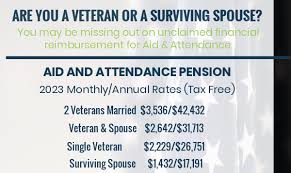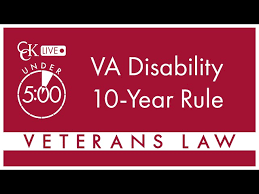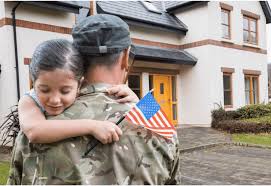As our veterans age, many of them require assistance with daily activities or medical care. For those who need more help than can be provided at home, assisted living facilities can be a great option. However, the cost of assisted living can be prohibitive for many seniors and their families. Fortunately, there are several veterans benefits that can help cover the cost of assisted living.
One of the most significant benefits available to veterans is the Aid and Attendance Pension. This benefit provides additional financial assistance to veterans who require help with daily activities such as bathing, dressing, and eating. It can also cover the cost of assisted living facilities or nursing homes.
To qualify for the Aid and Attendance Pension, a veteran must have served at least 90 days on active duty, with at least one day during a wartime period. The veteran must also meet certain income and asset requirements. The benefit amount varies depending on the veteran’s level of need and can range from around $1,200 to $2,800 per month.
Another program that can help cover the cost of assisted living is Veterans-Directed Home and Community Based Services (VD-HCBS). This program allows veterans to manage their own care by hiring their own caregivers or purchasing services from approved providers. VD-HCBS can cover a wide range of services including personal care, transportation, meal delivery, and home modifications.
To qualify for VD-HCBS, a veteran must be enrolled in VA healthcare and meet certain eligibility criteria. The program is available in most states but availability may vary depending on location.
In addition to these programs, some states offer additional benefits for veterans who need assistance with long-term care. For example, some states have programs that provide financial assistance for assisted living or nursing home care specifically for veterans.
Navigating these programs can be complex and time-consuming. It’s important to work with an experienced professional who understands how these benefits work and how they can best serve your needs. Veterans service organizations, such as the American Legion or Veterans of Foreign Wars, can provide assistance with navigating these programs.
In conclusion, veterans benefits can be a valuable resource for those who need assistance with daily activities or medical care. The Aid and Attendance Pension, VD-HCBS, and state-specific programs can all help cover the cost of assisted living facilities or nursing homes. If you are a veteran or a family member of a veteran who needs assistance with long-term care, it’s important to explore all available options and work with an experienced professional to maximize your benefits.
Frequently Asked Questions About Veterans Benefits for Assisted Living
- What health benefits are veterans entitled to?
- Will I lose my VA disability if I go to a nursing home?
- What veterans are not eligible for VA health care?
- What services does the VA offer to the elderly?
What health benefits are veterans entitled to?
Veterans are entitled to a range of health benefits through the Department of Veterans Affairs (VA). These benefits are designed to provide comprehensive medical care for veterans who have served in the military, regardless of their income or health status. Here are some of the health benefits that veterans are entitled to:
- VA Medical Care: Veterans can receive medical care at VA hospitals and clinics across the country. This includes primary care, specialty care, mental health services, and prescription medications. To be eligible for VA medical care, veterans must have served in the military and been discharged under conditions other than dishonorable.
- Disability Compensation: Veterans who were injured or became ill as a result of their military service may be eligible for disability compensation. This benefit provides tax-free financial assistance to veterans who have a service-connected disability.
- Pension: Veterans who are over age 65 or have a permanent and total disability may be eligible for a pension through the VA. This benefit is based on income and assets and is designed to help low-income veterans cover their basic needs.
- Long-Term Care: Veterans who require long-term care can receive assistance through the VA’s Community Living Centers, which provide nursing home care, rehabilitation services, and hospice care.
- Counseling Services: The VA offers counseling services for veterans with mental health issues such as post-traumatic stress disorder (PTSD), depression, anxiety, and substance abuse disorders.
- Prosthetics and Rehabilitation: Veterans who have lost limbs or suffered other physical injuries can receive prosthetic devices and rehabilitation services through the VA.
- Telehealth Services: The VA offers telehealth services that allow veterans to receive medical care from home using video conferencing technology.
Overall, these health benefits provide comprehensive medical care for veterans who have served in the military and ensure that they receive the support they need to maintain good health throughout their lives.
Will I lose my VA disability if I go to a nursing home?
No, you will not lose your VA disability compensation if you go to a nursing home. VA disability compensation is not means-tested, which means that it is not affected by your income or assets. Regardless of where you live, whether it’s in a nursing home or in your own home, you will continue to receive your VA disability compensation as long as you remain eligible.
However, if you receive the Aid and Attendance Pension, which is a separate benefit that provides financial assistance to veterans who require help with daily activities or medical care, your benefit amount may be adjusted based on the cost of care provided by the nursing home. This adjustment is made to ensure that veterans receive an appropriate level of financial assistance based on their needs.
It’s important to note that there are different types of nursing homes and long-term care facilities, and not all of them are eligible for VA benefits. To be eligible for VA benefits, a nursing home must be approved by the VA and meet certain quality standards. It’s important to check with the VA or a Veterans Service Organization (VSO) to determine whether a particular nursing home is eligible for VA benefits.
In summary, going to a nursing home will not affect your eligibility for VA disability compensation. However, if you receive the Aid and Attendance Pension, your benefit amount may be adjusted based on the cost of care provided by the nursing home. It’s important to check with the VA or a VSO to determine whether a particular nursing home is eligible for VA benefits.
What veterans are not eligible for VA health care?
While many veterans are eligible for VA health care, there are some who may not be eligible. The following list includes some of the veterans who may not be eligible for VA health care:
- Veterans with dishonorable discharges: Veterans who were discharged from the military with a dishonorable discharge are generally not eligible for VA health care. However, there are some exceptions to this rule, such as if the veteran’s discharge was later upgraded.
- Veterans with bad conduct discharges: Veterans who were discharged from the military with a bad conduct discharge may also be ineligible for VA health care.
- Veterans who did not serve long enough: To be eligible for VA health care, a veteran must have served at least 24 continuous months on active duty or have been discharged due to a service-connected disability.
- Veterans who make too much money: While most veterans are eligible for VA health care regardless of their income level, there is a means test for certain veterans who apply for VA health care. This means test takes into account the veteran’s income and assets to determine eligibility.
- Veterans without service-connected disabilities: While all veterans can receive some level of VA health care, those without service-connected disabilities may have limited access to certain services or may need to pay copays for certain types of care.
It’s important to note that even if a veteran is not eligible for VA health care, they may still be able to receive other types of assistance from the VA, such as disability compensation or education benefits. Additionally, there are many other resources available to veterans outside of the VA that can provide assistance with healthcare and other needs.
What services does the VA offer to the elderly?
The Department of Veterans Affairs (VA) offers a variety of services to elderly veterans to help them maintain their health, independence, and quality of life. Here are some of the services that the VA offers to elderly veterans:
- Health Care: The VA provides comprehensive health care services to eligible veterans, including preventive care, primary care, specialty care, and mental health services. The VA also offers home-based primary care and telehealth services for veterans who are unable to visit a VA medical center.
- Geriatrics and Extended Care: The VA’s Geriatrics and Extended Care program provides a range of services for elderly veterans, including nursing home care, respite care, hospice and palliative care, adult day health care, and home-based primary care.
- Disability Compensation: Elderly veterans who have service-connected disabilities may be eligible for disability compensation from the VA. This compensation can help offset the costs associated with their disability.
- Pension: The VA offers a pension program for low-income wartime veterans who are 65 years or older or who have a permanent and total non-service-connected disability.
- Home Loans: Elderly veterans who own homes may be eligible for VA home loans or loan refinancing programs that can help them access equity in their homes.
- Life Insurance: The VA offers life insurance programs for eligible veterans that can provide financial security for their families in the event of their death.
- Education and Training: Elderly veterans who want to continue their education or pursue job training may be eligible for educational benefits through the GI Bill or other programs offered by the VA.
Overall, the Department of Veterans Affairs provides a wide range of services to elderly veterans to help them maintain their health, independence, and quality of life. Eligibility requirements vary depending on the specific program or service being offered, so it’s important for elderly veterans to work with a knowledgeable VA representative to determine what benefits they may be eligible for.




